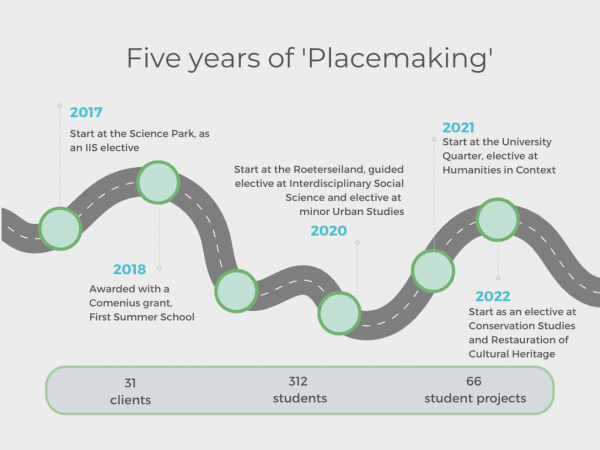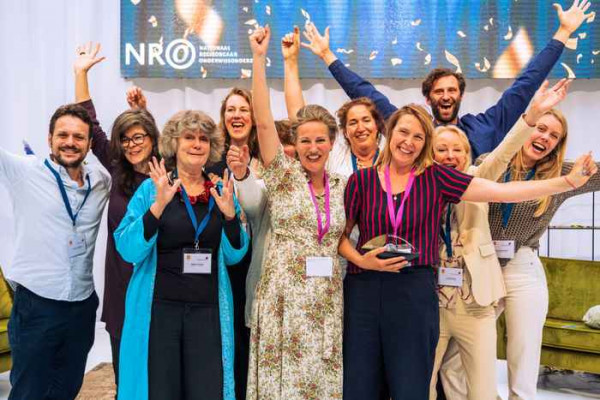
 This transdisciplinary approach is evident in students' collaboration with clients to address social, place-based challenges. The analysis and transformation of these challenges are rooted in key principles such as participation, design, ecology, and administrative-legal frameworks. Guided by research findings, students, in collaboration with key stakeholders, initiate on-site interventions aimed at improving identified problem areas. The dynamic nature of Placemaking includes an estafette element, enabling successive groups of students to build upon the knowledge and insights gained by their predecessors. Notably, the Placemaking courses have seen active participation from over 300 students, as highlighted in the online article by Katusha Sol and Rosanne van Wieringen (2022).
This transdisciplinary approach is evident in students' collaboration with clients to address social, place-based challenges. The analysis and transformation of these challenges are rooted in key principles such as participation, design, ecology, and administrative-legal frameworks. Guided by research findings, students, in collaboration with key stakeholders, initiate on-site interventions aimed at improving identified problem areas. The dynamic nature of Placemaking includes an estafette element, enabling successive groups of students to build upon the knowledge and insights gained by their predecessors. Notably, the Placemaking courses have seen active participation from over 300 students, as highlighted in the online article by Katusha Sol and Rosanne van Wieringen (2022).
 On the 29th of June 2023 Placemaking was awarded the Dutch Education Prize 2023 for academic education. Nine education teams from vocational schools, universities of applied sciences, and universities received the Dutch Education Prize from the Minister of Education, Culture, and Science during the Comenius Festival. The Dutch Education Prize, awarded by the Netherlands Initiative for Education Research (NRO), is the highest distinction in vocational education and higher education.
On the 29th of June 2023 Placemaking was awarded the Dutch Education Prize 2023 for academic education. Nine education teams from vocational schools, universities of applied sciences, and universities received the Dutch Education Prize from the Minister of Education, Culture, and Science during the Comenius Festival. The Dutch Education Prize, awarded by the Netherlands Initiative for Education Research (NRO), is the highest distinction in vocational education and higher education.
